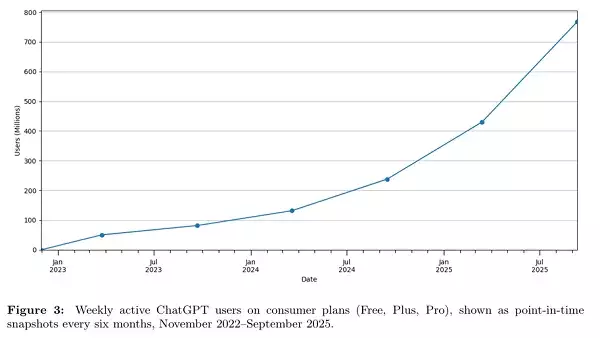In recent years, artificial intelligence has shifted from niche experimentation to mainstream adoption, and ChatGPT stands at the forefront of this revolution. The rapid escalation in its user base—from just over a million active users in late 2022 to an astonishing 700 million weekly interactions—reflects a seismic shift in how humanity interacts with machines. This surge is no accident; it underscores a fundamental transformation in technology’s role from mere tools to trusted companions capable of assisting in everyday decision-making, learning, and creativity. The question is not just how many users rely on ChatGPT, but what their interactions reveal about our collective mindset and expectations from AI.
Narratives of Usage: Beyond the Stereotypes
A closer look at the nature of conversations with ChatGPT uncovers intriguing patterns. Contrary to early assumptions that AI tools would predominantly serve as writing aids or creative partners, data indicates that the majority of interactions—around 70%—are not work-related. Instead, people turn to ChatGPT for practical advice, information seeking, and personal reflection. These categories reflect a desire for accessible, immediate assistance that enhances daily life rather than replacing traditional tools outright. Interestingly, the most common topics are Practical Guidance, Seeking Information, and Writing, with the latter showing signs of stabilization, while informational queries continue to grow.
What does this shift say about our relationship with AI? It suggests that users increasingly view ChatGPT as an extension of their own cognitive processes—an intelligent assistant that complements human decision-making rather than overshadowing it. More than an entertainment or creative outlet, AI is becoming embedded in the fabric of personal and practical problem-solving.
Changing Trends: From Creation to Discovery
One of the most compelling insights from the report is the evolving purpose of ChatGPT interactions. Over time, there’s been a noticeable decline in users leveraging the platform primarily for writing tasks, such as creating essays or stories. Instead, more people are engaging with ChatGPT for seeking factual information or guidance—that is, using it as a search alternative. This trend could signal a paradigm shift, where AI-powered conversational agents are beginning to encroach on the territory once dominated by traditional search engines.
This transformation isn’t merely about convenience; it reflects a deeper desire for nuanced, contextual understanding that AI can provide. People now seek tailored advice, specific insights, and complex explanations that match their unique circumstances. Consequently, ChatGPT is becoming an active partner in discovery, rather than just a passive tool for generation.
The Future of Human-AI Collaboration
Looking ahead, the data suggests that AI’s role will be increasingly targeted toward decision-making and personalized assistance. While the initial hype sensationalized AI as a creative or radical innovation, current trends highlight its utility in practical, decision-support scenarios. This shift could redefine the landscape of digital literacy, workplace productivity, and personal growth.
Notably, the decreasing reliance on AI for creative writing doesn’t imply failure but rather maturation. It demonstrates that users are discovering its true strength—serving as a reliable, accessible source of verified information and actionable advice. As AI systems continue to evolve, we might expect even deeper integration into our everyday routines, augmenting rather than replacing human skills.
ChatGPT’s trajectory is a testament to how human curiosity and adaptability shape technological adoption. Its growth is fueled not only by technological advances but by an innate desire to find smarter, more efficient ways to navigate a complex world. This evolution hints at a future where AI and humanity are collaborators—each amplifying the other’s strengths in unprecedented ways.

